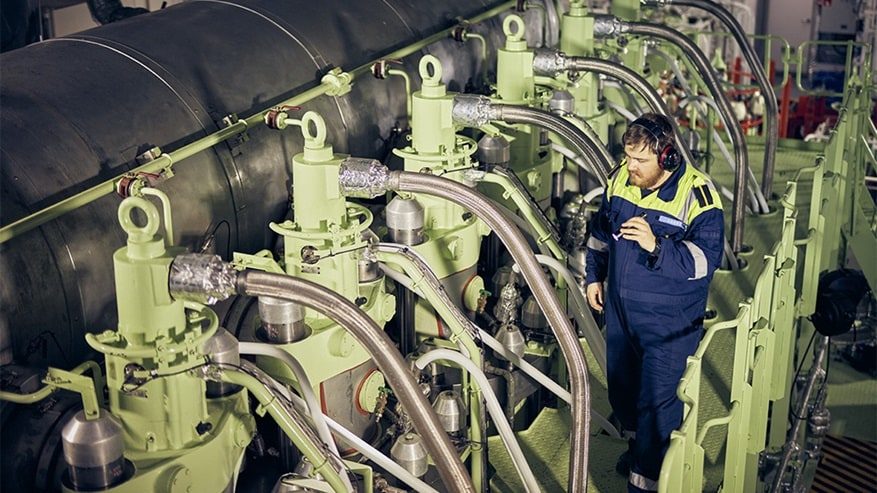Maersk to take delivery of carbon-neutral container ships in 2024
Methanol-powered vessels boast 16,000 TEU capacity, but sourcing their specialized fuel may be a challenge.

Maritime container giant A.P. Moller - Maersk is taking steps toward its pledge to “decarbonize” operations, saying today that it will begin replacing its bunker fuel-burning ships with methanol-powered versions beginning in the first quarter of 2024.
That ship will be the first in a series of eight full-sized, ocean-going container vessels capable of being operated on carbon-neutral methanol. That capability could potentially help the company avoid the noxious emissions created by burning petroleum products, but Maersk said it is still searching for reliable sources of the new fuel.
Container lines have recently begun moving toward carbon-neutral goals, following the launch in 2020 of the “IMO 2020” regulations, a set of environmental standards issued by the International Maritime Organization (IMO) that are designed to curb air pollution by banning ships from using fuel with high sulfur content. However, since low-sulfur fuel is currently more expensive than traditional "bunker" fuel, companies have been looking for alternatives.
Retailers and shippers are also pushing the effort to clean up global logistics operations, with more than half of Maersk’s 200 largest customers having launched or already set science-based or zero-carbon targets for their supply chains, the company said. They include major names like Amazon, Disney, H&M Group, HP Inc., Levi Strauss & Co., Microsoft, Novo Nordisk, The Procter and Gamble Company, PUMA, Schneider Electric, Signify, Syngenta, and Unilever.
Maersk’s new vessel will have a capacity of 16,000 twenty foot equivalent (TEU) containers, and be built by Hyundai Heavy Industries (HHI), with an option for four additional vessels in 2025. That marks a significant step up from previous size limits for clean-emissions vessels, which were at about 2,000 TEU, the company said.
The vessels will come with a dual fuel engine setup allowing them to run on either methanol or conventional low-sulphur fuel, but Maersk says finding the new fuel may be a challenge. “Maersk will operate the vessels on carbon neutral e-methanol or sustainable bio-methanol as soon as possible. Sourcing an adequate amount of carbon neutral methanol from day one in service will be challenging, as it requires a significant production ramp up of proper carbon neutral methanol production, for which Maersk continues to engage in partnerships and collaborations with relevant players,” the company said in a statement.
Maersk will purchase the new family of ships as part of its typical fleet-renewal program, and says they will replace tonnage of more than 150,000 TEU which is reaching end-of-life and leaving the Maersk managed fleet between 2020 and the first quarter of 2024.
“We are very excited about this addition to our fleet, which will offer our customers unique access to carbon neutral transport on the high seas while balancing their needs for competitive slot costs and flexible operations,” Henriette Hallberg Thygesen, Maersk’s CEO for Fleet & Strategic Brands, said in a release. “To us, this is the ideal large vessel type to enable sustainable, global trade on the high seas in the coming decades and from our dialogue with potential suppliers, we are confident we will manage to source the carbon neutral methanol needed.”
A.P. Moller - Maersk accelerates fleet #decarbonisation with 8 large ocean-going vessels to operate on #carbonneutral methanol - annual CO2 emissions savings of around 1 million tonnes.
— Maersk (@Maersk) August 24, 2021
Discover more here: https://t.co/BMPX5XPZgJ #Maersk #greenfuel #climateaction #alltheway pic.twitter.com/Nxsj3i8mRs
Related Articles

Copyright ©2024. All Rights ReservedDesign, CMS, Hosting & Web Development :: ePublishing